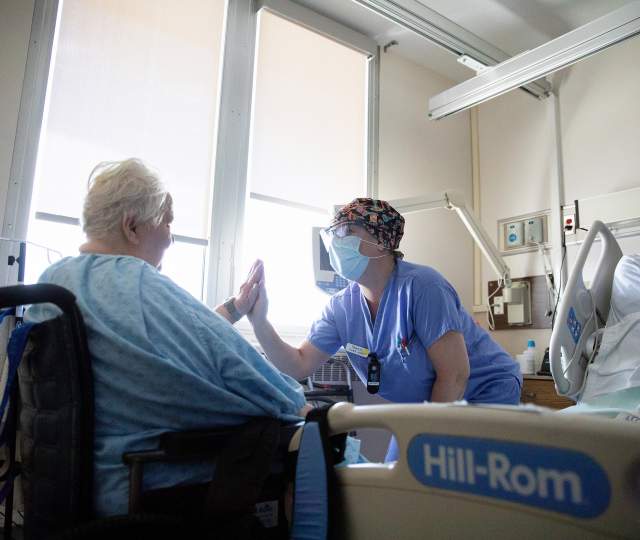Accreditation
We’re committed to our vision of health and well-being for all. We’re proud of the quality of care we provide, which is assessed and confirmed through Accreditation Canada.
We participate in a continuous accreditation process to embed quality improvement and patient safety into ongoing strategic planning and operations.
Our teams conduct self-assessments to identify strengths and opportunities for improvement. Then, expert national surveyors conduct an external assessment to validate the quality of care provided to patients, clients and those in our care.
Interior Health is being visited by Accreditation Canada surveyors March 6-10, 2023. Learn more about accreditation interaction with clients/residents/patients and visitors.
Learn more about the accreditation process.














